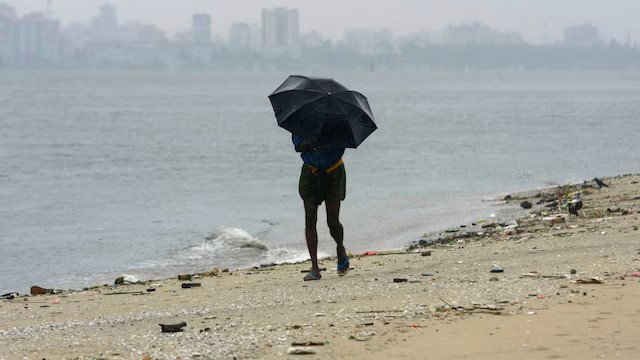As the monsoon season progresses, several states in India are bracing for heavy rainfall that could significantly impact daily life, agriculture, and infrastructure. Today, the Indian Meteorological Department (IMD) has issued alerts for heavy rainfall in Assam, Kerala, and Tamil Nadu, warning residents to prepare for potential disruptions. This article delves into the weather patterns affecting these states, the anticipated impact of the rains, and the necessary precautions that residents should take.
Assam: Anticipating Heavy Downpours
In Assam, heavy rainfall is expected over the next few days, particularly in the northern and central regions of the state. The IMD has forecasted that areas such as Guwahati, Tezpur, and Jorhat may experience significant precipitation, potentially exceeding 100 mm in some areas.
The heavy rains are linked to a low-pressure system forming over the Bay of Bengal, which is expected to move inland. This system will bring moisture-laden winds, resulting in widespread rainfall across the northeastern states. While the monsoon rains are crucial for replenishing water sources and supporting agriculture, excessive rainfall raises concerns about flooding and landslides, especially in hilly areas.
Authorities in Assam have urged residents to remain vigilant, particularly those living in low-lying areas prone to flooding. The government has deployed teams from the State Disaster Response Force (SDRF) to monitor vulnerable regions and assist with evacuations if necessary. The local administration is also coordinating with health services to prepare for potential waterborne diseases that can arise in the aftermath of heavy rains.
Kerala: Bracing for Intense Showers
Kerala, known for its picturesque landscapes and lush greenery, is set to experience intense showers today, with the IMD predicting heavy rainfall in several districts, including Idukki, Wayanad, and Malappuram. The monsoon rains are expected to intensify due to a trough of low pressure extending from the Bay of Bengal, which is likely to cause localized downpours.
The rainfall is anticipated to affect daily life, disrupting transportation services and posing challenges to farmers who are in the midst of the harvest season. Kerala’s agricultural sector, which heavily relies on monsoon rains, is already on alert as farmers prepare for possible crop damage.
The state government has issued warnings to residents, advising them to stay indoors during the heaviest downpours. Emergency services are on standby, and the government has initiated measures to ensure the safety of those living in flood-prone areas. Authorities are monitoring river levels closely and are prepared to implement evacuation plans if necessary.
Tamil Nadu: Preparing for Heavy Rains
In Tamil Nadu, heavy rainfall is also forecasted for various districts, particularly in the western and coastal regions. The IMD has issued a yellow alert for areas such as Coimbatore, Nilgiris, and Tirupur, indicating the possibility of heavy rainfall over the next 24 hours.
As the southwest monsoon reaches its peak, the state is likely to experience thunderstorms and lightning along with the rains. Residents are advised to be cautious, particularly those engaged in outdoor activities. The Chennai Meteorological Centre has warned of potential disruptions to public transportation, including buses and trains, as heavy rains can lead to waterlogging and traffic delays.
Farmers in Tamil Nadu are encouraged to assess their crop conditions and take preventive measures against potential flooding. The state government is actively monitoring weather conditions and is prepared to respond to any emergencies that may arise due to the heavy rains.
General Precautions and Safety Measures
In light of the anticipated heavy rainfall across Assam, Kerala, and Tamil Nadu, it is crucial for residents to take the following precautions:
- Stay Informed: Keep an eye on weather updates from the IMD and local authorities. Understanding the weather forecast will help residents prepare adequately.
- Avoid Outdoor Activities: Limit outdoor activities during heavy rain, particularly in areas prone to flooding or landslides.
- Emergency Kit: Prepare an emergency kit with essential supplies such as water, food, flashlights, and medical supplies. This is especially important for families living in flood-prone regions.
- Evacuation Plans: Familiarize yourself with evacuation routes and plans in case of severe flooding. Ensure that all family members are aware of these plans.
- Community Support: Stay connected with neighbors and local community groups to share information and provide support in emergencies.
The heavy rainfall forecasted for Assam, Kerala, and Tamil Nadu poses both opportunities and challenges for the states. While the monsoon is essential for agriculture and replenishing water sources, excessive rain can lead to flooding and other hazards. Residents are encouraged to remain vigilant, stay informed, and take necessary precautions to ensure their safety and well-being. As the situation develops, local authorities will continue to monitor the weather closely and respond appropriately to any emergencies that may arise.


